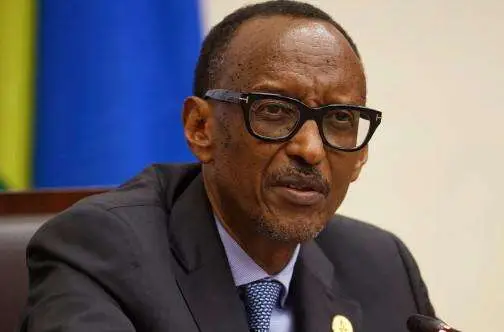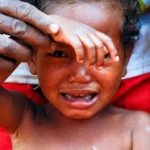In a dramatic escalation of regional tensions, leaders in Eastern Africa are grappling with an increasingly complex landscape marked by shifting alliances and a series of international punitive measures. Recent developments have fueled a sense of isolation among key figures in the region, with some government officials warning that external interference may trigger severe retaliatory actions.
A Climate of Uncertainty
The past few weeks have seen a series of high-stakes moves that underscore the fragility of diplomatic relations in Eastern Africa. Global powers, concerned about human rights violations and the destabilizing effects of regional conflicts, have recently enacted sanctions targeting prominent figures believed to be connected with armed groups operating along the eastern borders of the Democratic Republic of Congo (DRC). These sanctions, which include travel bans and asset freezes, are part of a broader international strategy aimed at curbing activities that undermine peace and regional security.
Regional Leaders React
Amid these international developments, senior leaders in the area have taken a defiant stance. At a widely attended national event commemorating a solemn historical milestone, one top official issued a stark warning to foreign governments, emphasizing that any attempt to undermine local governance could lead to unpredictable consequences. The message, resonating with nationalist sentiment, reflects a broader frustration with what is perceived as undue external meddling in domestic affairs.
Implications for the Conflict in the DRC
The eastern regions of the DRC, rich in critical minerals essential for modern technologies such as electric vehicles and renewable energy infrastructure, have long been a flashpoint for conflict. Various armed groups have vied for control over resource-rich territories, a struggle that has drawn in neighboring states and external powers alike. Recent reports indicate that one of these groups has made notable advances by seizing control of key urban centers, though subsequent developments suggest that the advance may have been a tactical move rather than an outright conquest.
Economic and Strategic Fallout
The sanctions imposed by Western nations and the European Union are not without significant economic repercussions. Trade flows have already begun to slow, with several countries suspending aid and curtailing export permits—a move that is expected to reverberate throughout the region’s delicate economies. Critics argue that these actions, while aimed at curtailing destabilizing behavior, risk undermining essential humanitarian efforts and may inadvertently fuel the very conflicts they are intended to resolve.
Diplomatic Efforts and the Road Ahead
Despite the hardline rhetoric, behind-the-scenes diplomatic efforts continue. Negotiations mediated by international partners are reportedly underway, aiming to secure a ceasefire and initiate broader peace talks that could offer a pathway out of the current impasse. Both regional and international stakeholders appear to recognize that lasting stability in Eastern Africa hinges on finding a balanced solution that addresses security concerns while supporting economic recovery.
As the situation evolves, the interplay between internal politics, regional dynamics, and global economic interests will likely determine whether Eastern Africa can navigate these troubled waters toward a more peaceful future or spiral further into discord. Observers on all sides remain cautious, knowing that every new decision carries the potential for significant, far-reaching consequences.






